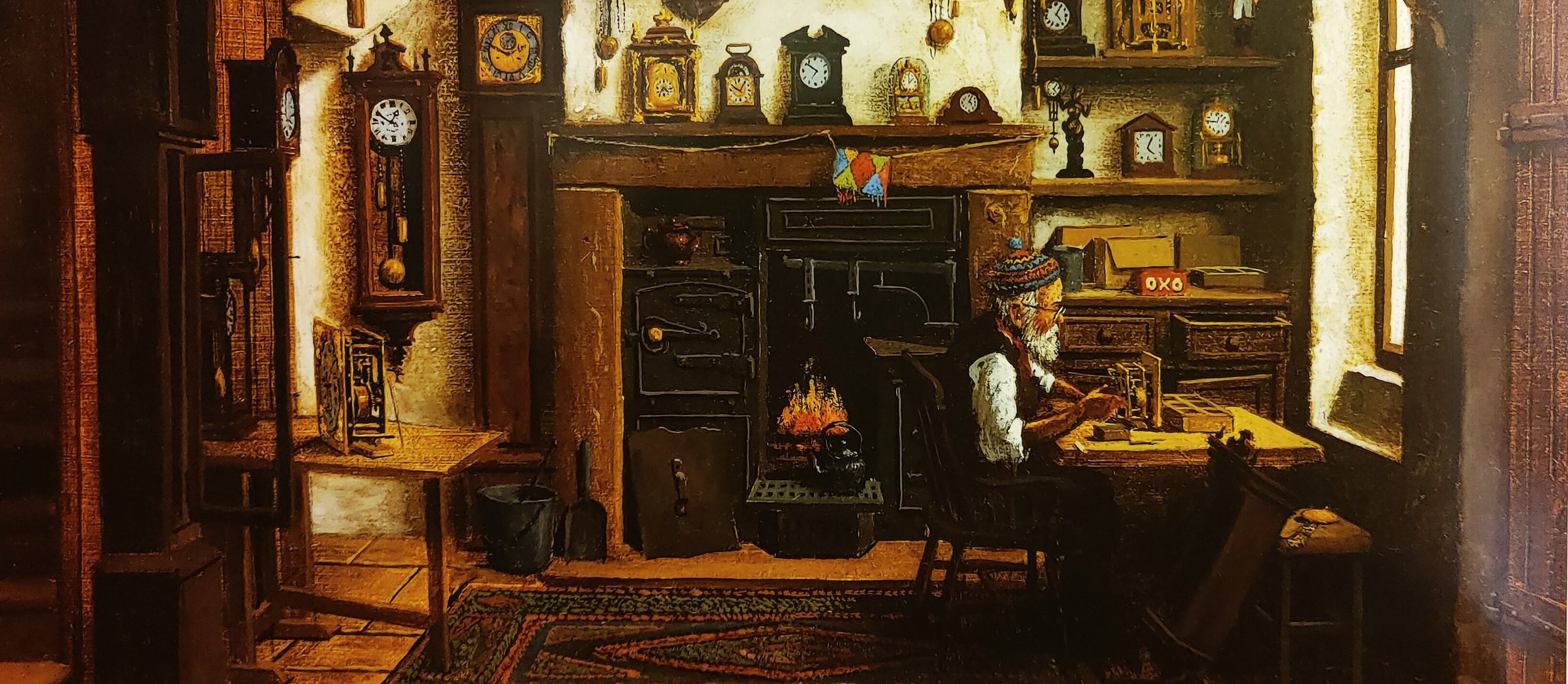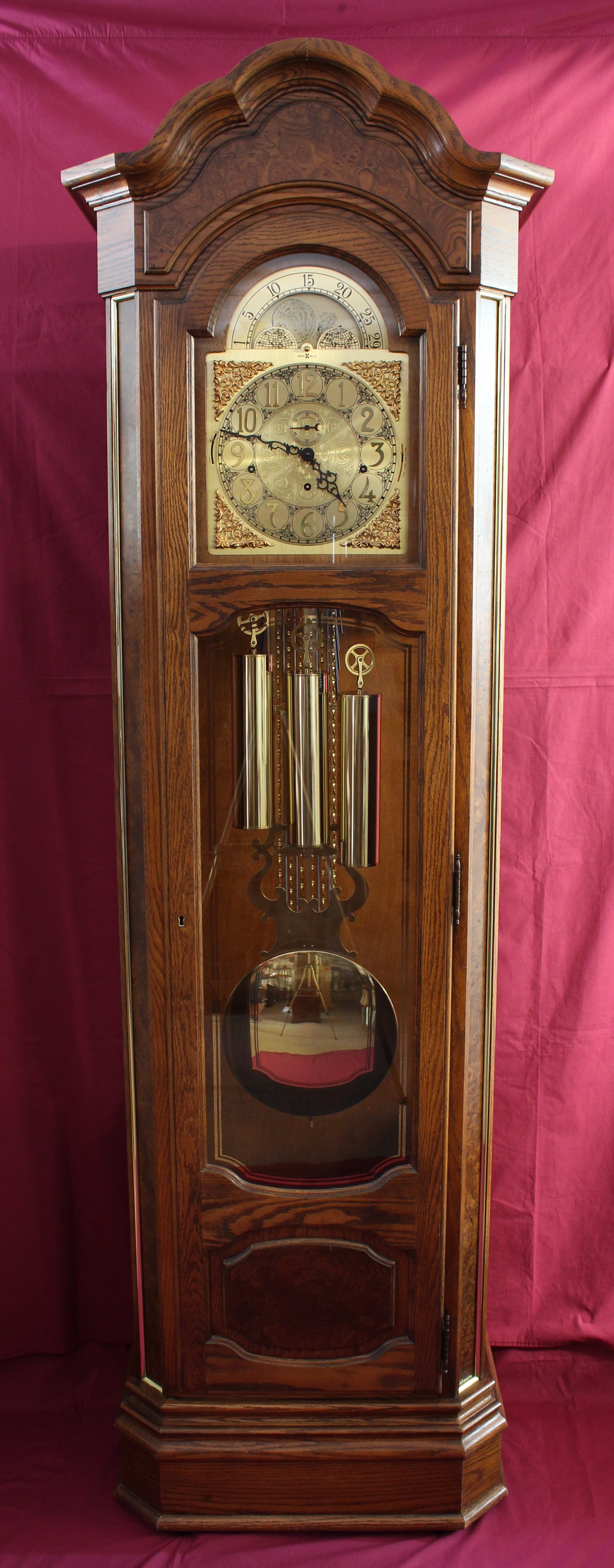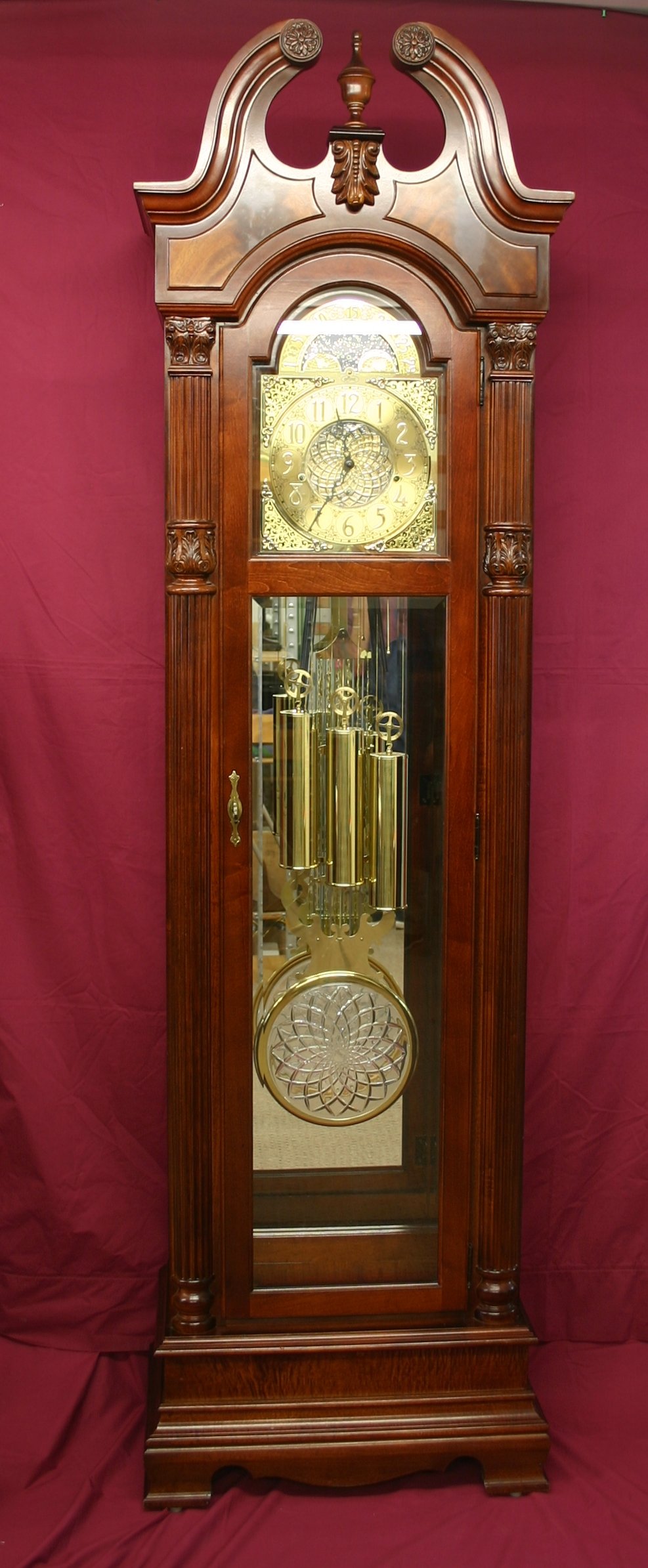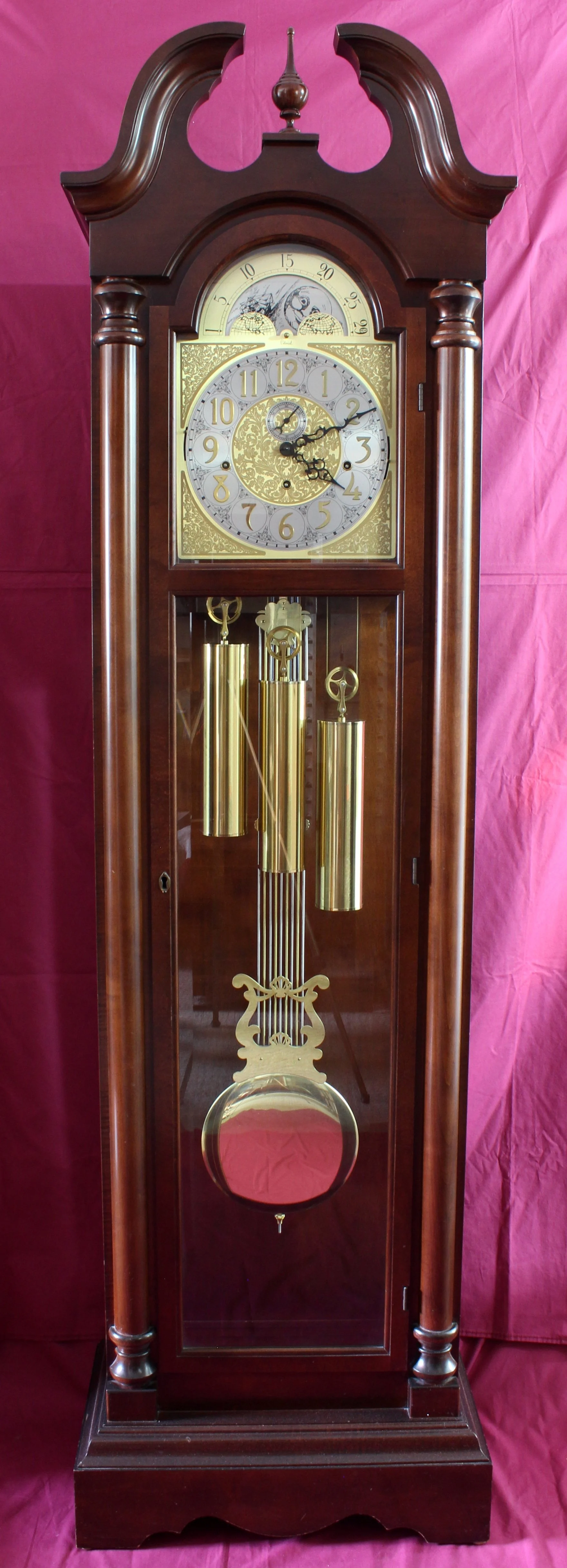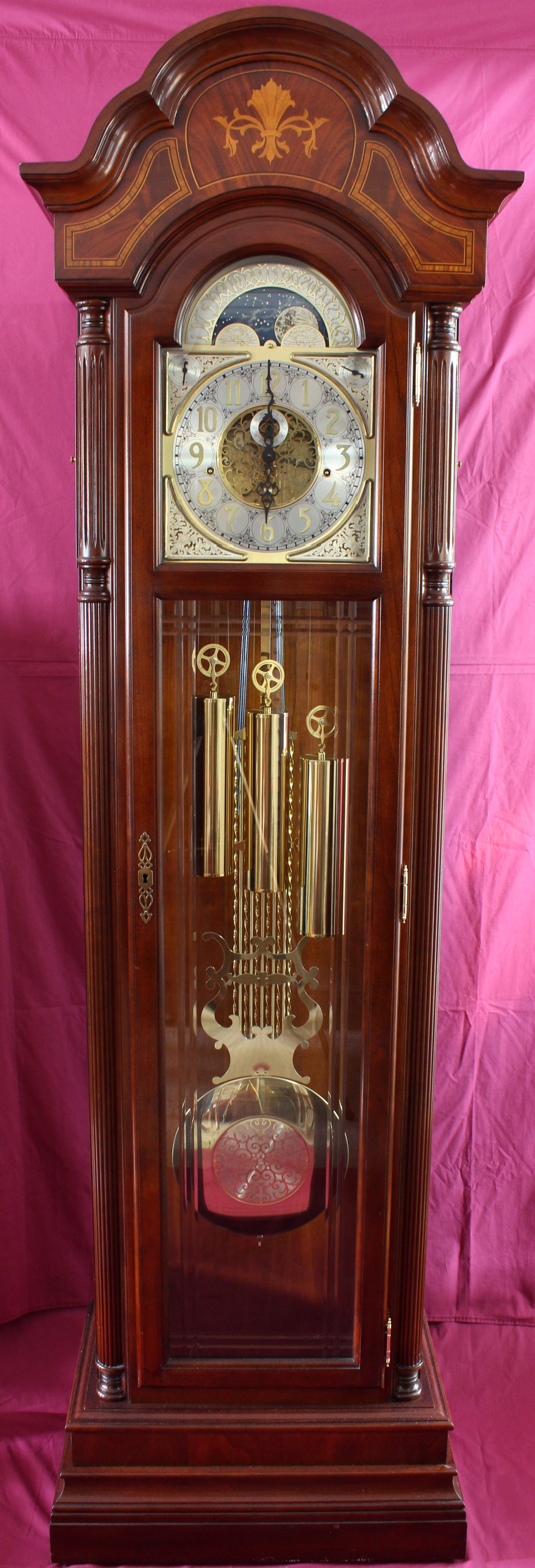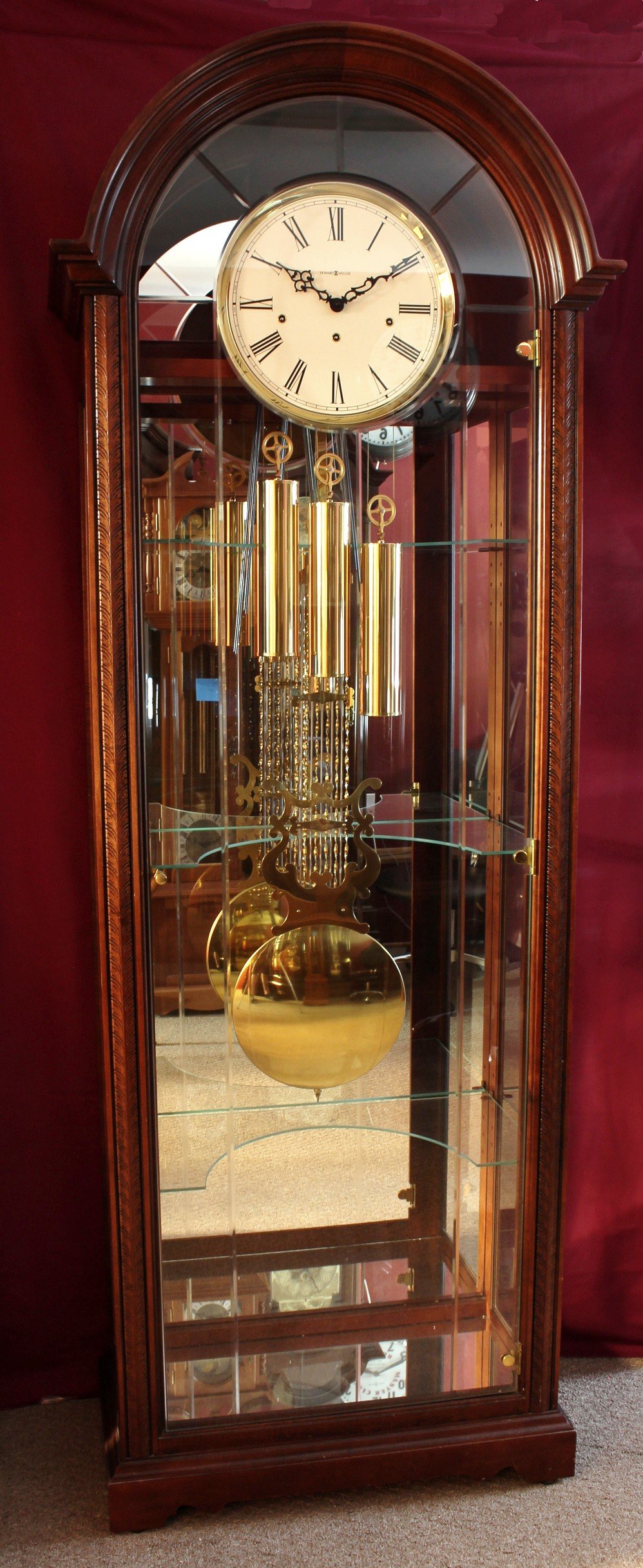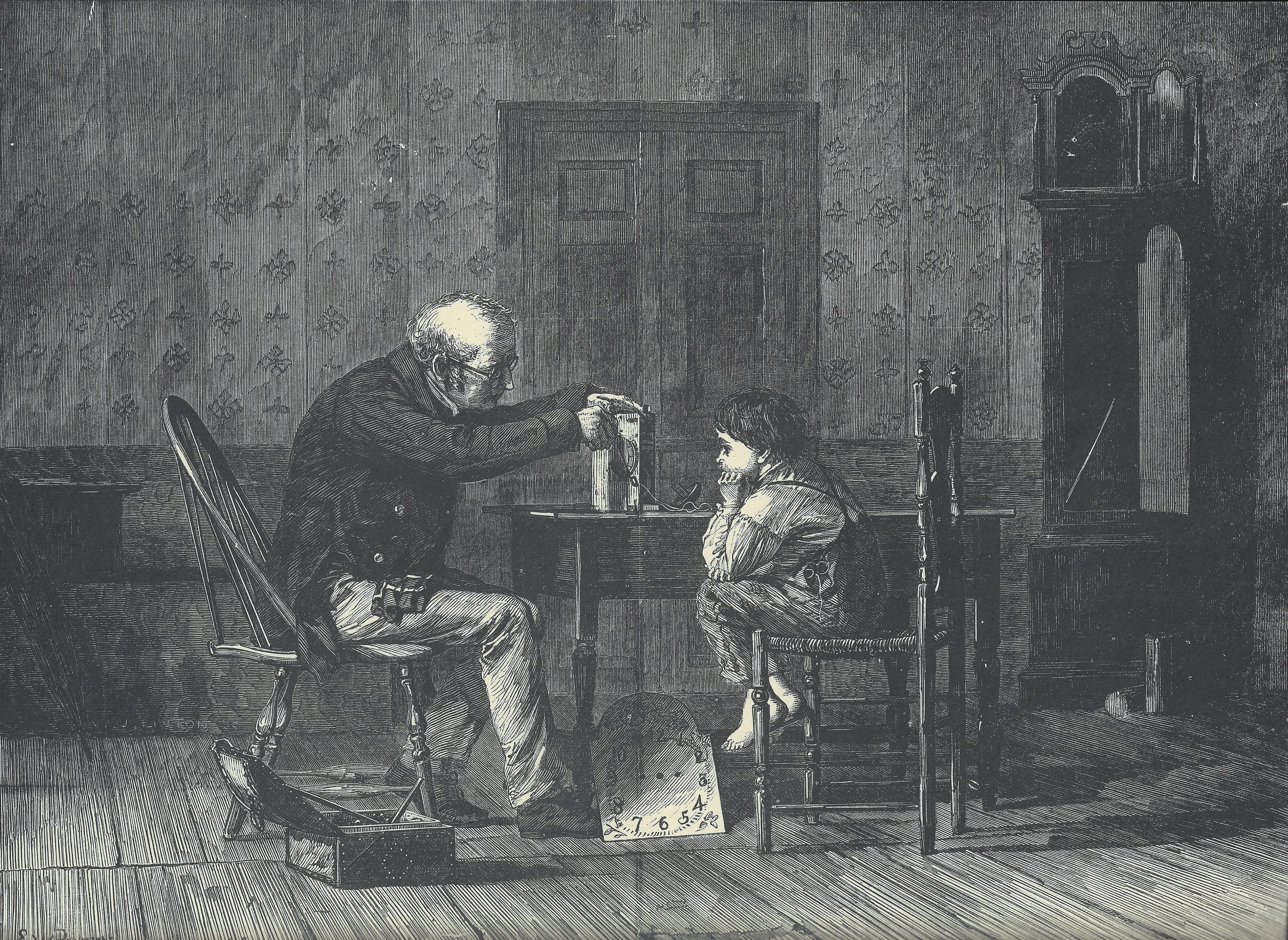
Restoring memories with every repair

WE Make House Calls
There is no clock shop in Central-Ohio that has made more house calls or has been doing it longer than Michael Gainey. He has been performing house calls since 1978 and conservatively estimates that he has made more than 24,000 house calls throughout Ohio and the neighboring states. In our attempt at providing a higher-than-average quality level of service than the majority of our competitors, we place the best interests of our customers first and we try to be extraordinarily thorough in advising them, taking into account the potential long-term success of our in-home service work in accordance with the age, condition and life expectancy of the individual clock, within the limitations of an in-home repair.
Much more information Below


Our House call Qualifications
Michael Gainey Teaches a class titled “Servicing the aging modern Floor clock in the home”. In this class he teaches students, from his vast experience, how to troubleshoot problems specific to different clock movement manufacturers. There is rarely a problem with a clock movement that he is unable to diagnose quickly and get right to work repairing the problem.
Letter to the “Horological Times” editor from Andrew Baron who attended Michael’s House Call Class
Dear Cindy and Jordan,
I just wanted to take a moment to let AWCI know how much more significantly prepared I feel I am, after taking Michael Gainey’s class, Servicing the Aging Modern Floor Clock in the Home, last week.
A day hasn’t passed since, that I’m not putting to work specific elements of what I learned. Beyond that, the overriding message of how to conduct a successful business following Michael’s model is influencing my own thinking and bringing my work into focus like never before.
While I can’t speak for the other students, I witnessed more than a few “aha” moments (and even a couple of forehead-slapping ones) as Michael illuminated some of the finer technical points.
Thanks for creating this opportunity for me to get a more solid foundation under my clock repair business, which is on much firmer footing than it would otherwise be, if not for the wisdom and volumes of pure information gained during the course of the class.
Andrew Baron, Santa Fe, NM


We complete 95% of our in-home repairs in one trip.
Through Michael’s classes and his attendance of dozens of clock conventions he meets clockmakers from all over the United States. You would be surprised to learn that many clockmakers will insist that most, if not every clock, must be taken into the shop to be rebuilt or replaced. This can increase the cost of the repair by 500% or more. While in your home, when appropriate, we will give you an honest assessment of the clock’s condition, the scope of repair he can complete in this one trip, and a good idea of the long-term success of that repair. you don’t need to worry about us overselling you on something you may not need. With very few exceptions, almost any grandfather clock under 20 to 25 years can be adequately repaired and serviced in a single trip. As a clock gets older its chance of needing more work in the shop begins to increase, but even so, the vast majority of clocks over 25 years old can still be repaired in home, in one trip. We often get 100-year-old clocks functioning again in a single trip!


Diagnosing a worn-out clock
Just like cars, clock movements wear out with age and use. Unfortunately, most modern era grandfather clocks will wear out somewhere between 20 and 40 years of age. There are of course no “hard and fast rules” but because we have been making house calls for over 44 years there is not much we haven’t seen and that includes the average life spans of the different grandfather clock movements that have been in production in the last 50 years or so. There are currently only three major manufacturers of grandfather clock movements and two of them are owned by the same company, therefore we see the same floor clock movements over and over again. Just like “a chain is only as strong as its weakest link”, Age will expose the weakness of any machine and that includes clock movements. We know where the common wear areas are for each movement brand and type and often how much wear that specific movement can tolerate and still function. We will never try to upsell you on an in-shop repair unless we believe it is absolutely necessary.
What if my clock is worn out?
When your clock wears out, it has to go into the shop. Generally, there are two options. One option is to rebuild or overhaul the grandfather clock movement. The other option is to replace the movement if it is still in production. some shops will only rebuild and never replace. I have never fully understood this, but all shops are free to establish their own business principals. For those who end up calling a shop with this business model, the rebuild will often cost more than a replacement grandfather clock movement and the repair will take much longer. Many shops will have an overhaul or rebuild backlog of a year or more. We are happy to rebuild any clock movement for our customers, but we typically offer our customers a replacement movement, if it is available. Instead of waiting months or years to get the work completed and re-delivered we can often have a new movement back in your clock case in 6 weeks and do it for less than those who rebuild them!


Why you may not want your clock rebuilt.
Master Clock Repair rebuilds or overhauls many clocks every year. We do not shy away from a rebuild when it is absolutely necessary. With many out of production clock movements, there is simply no other choice but to rebuild it. However, when a replacement is available, like already mentioned, it can usually be done for less cost and done faster…way faster. The other problem with many rebuilds of modern era grandfather clock movements is that it is very difficult to rebuild certain individual clock movement components. When you get a rebuild, they do not typically replace older parts that cannot be rebuilt. If these parts are currently functional, they just leave them in there. parts like cables, main wheel click springs, hammer tails, chime cylinders and escape wheels are the first examples that come to mind. If any of these parts fail beyond the warranty period, these parts can be expensive to replace as they most often would require a pick-up and delivery fee plus the work in the shop and the cost of the part. Some of these parts may require a complete teardown of the movement to get to the failed part.


Mis-diagnosed clocks
It is not unusual for us to end up in someone’s home after someone else has already been there to work on their grandfather clock. Sometimes the “clockmaker” was unable to solve the problem and wanted to take the clock in for further work. After getting a quote, some of our customers have decided to get a second opinion. For those clockmakers without a great deal of experience, replacing or rebuilding the clock is oftentimes their only option since they are unable to properly diagnose the needs of the clock. In many cases we have been unable to complete the needed repair in a single trip. Other times, the clock really is worn out, but the owner did not want to wait for the rebuild to be completed when we can get a replacement faster.
We cover the Entire State and Beyond
Although most of our house calls are here in Franklin County, we have been to almost every corner of the state. We frequently find ourselves in Delaware, Marysville and Bellefontaine, Lancaster, Amanda and Logan, Ashville, Circleville and Chillicothe, West Jefferson, Springfield and Dayton, Granville, Newark, Heath and the Buckeye Lake area to name just a few. We have even made house calls in West Virginia, Kentucky and Indiana.
No matter where you are, we have you covered if you cannot find a qualified clockmaker near you.


What a typical home visit consists of
Once we arrive and greet the customer, we will get right to work diagnosing the clock. We may have some additional questions to clarify the issue with the clock. When we look into your clock case to see which movement you have, we can combine the problem you are having with the common problems that each different movement type are known to have. Once we have confirmed the proper repair to address the issue, we will start the repair. sometimes this requires the dial be removed, other times the movement must be removed and sometimes, all needed repairs can be done without removing either. Once the immediate problem is solved, we will go about the routine maintenance of the grandfather clock movement. Please understand that a clock movement cannot be properly cleaned in the home. A cleaning of your movement requires that it be taken into the shop, disassembled and submerged in an ultra-sonic cleaning tank.
Fortunately, this is rarely necessary or desired as the cost of the in-shop cleaning does not equal the potential benefit if the clock can be made to work correctly without it. Maintenance may involve picking out small amounts of dirt and grime or wiping the movement plates off with a rag, but this is not a cleaning! Maintenance mainly involves re-oiling the clock and checking over the various functions of the clock movement to make sure all adjustments are within an acceptable range. We can often see problems that haven’t come up yet that we can take care of now to avoid another house call later. After the problem is resolved, all functions checked, and maintenance completed we will adjust your strike and chime hammers for best tone and level the clock case and stabilize it as firmly as possible given its location in the home. we will then set the clock hands to the correct time, set the moon dial, if you have one, and then answer any questions you may have. In many cases we will discuss with you everything you need to know to enjoy and operate your clock in the best possible manner. this frequently means explaining hand setting rules, the winding procedure, how to set the moon dial, and regulating the clock. We will also discuss any areas that may be unique to your specific clock or unusual due to its current operating condition. This might include warnings about what not to do to avoid future problems and if the clock is nearing the end of its mechanical life due to age, we will discuss what will eventually be necessary to repair it and what the current cost is.
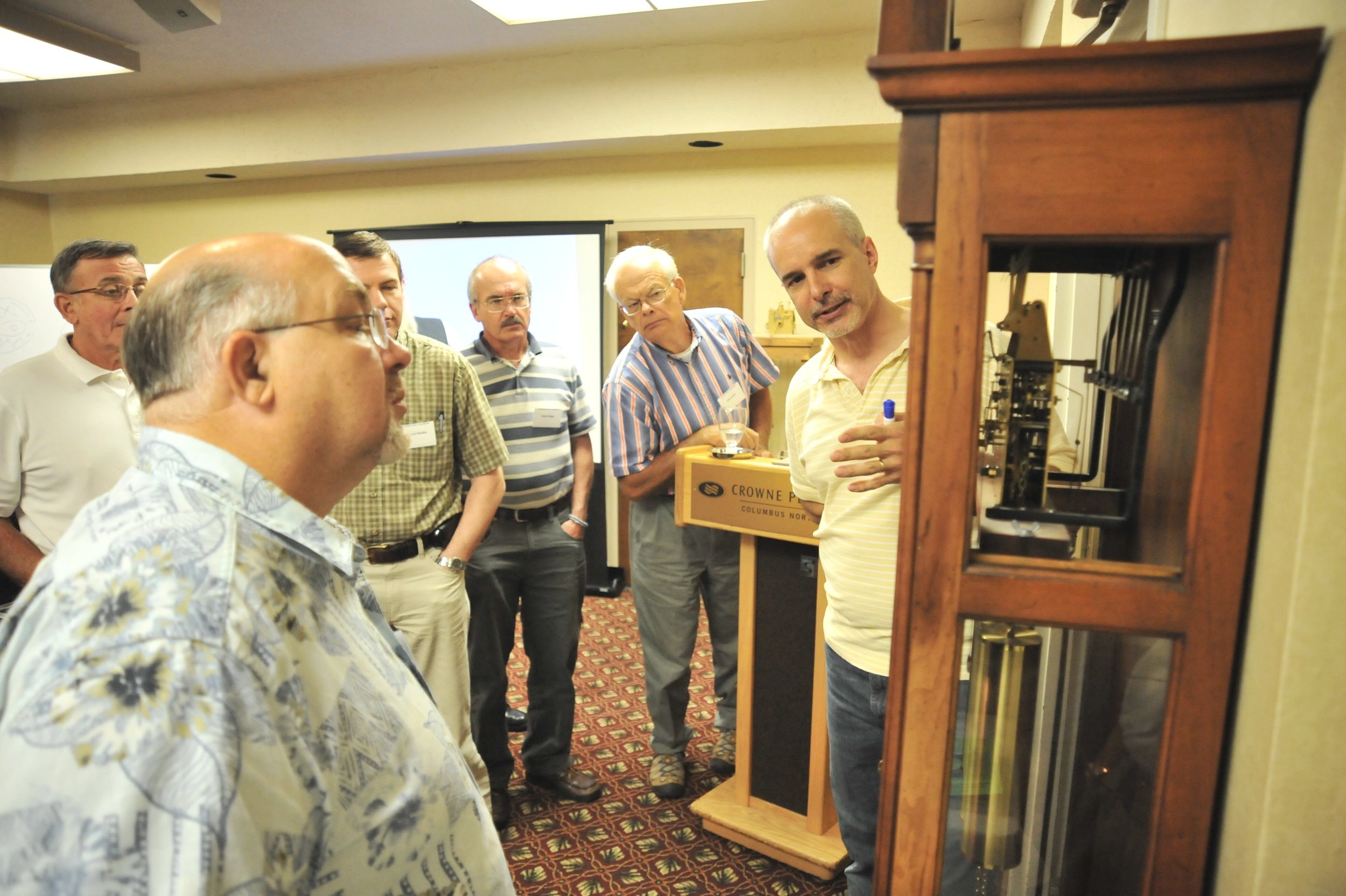
Michael teaching one of his house call classes

Scheduling a house call
Our main goal is to repair your clock, in your house, in a single visit, for a reasonable cost. Because we are able to do this, often very quickly, and with ease, our house call price is often lower, sometimes much lower, than other clock repair shops. A typical Scheduling goes like this. When someone calls with a need for in-home repair of a grandfather clock, we first ask a set of very specific questions to try to determine in advance the feasibility of an in-home repair. We ask questions like; what problem are you having, what brand of clock do you own, how old is the clock, have you had it serviced recently or has anything unusual happened recently that might have caused the problem? Sometimes we can solve the problem on the phone for free just by giving the owner the information they need. If they agree to a house call we fill out a house call card, discuss available dates and set the appointment. All customers will receive a call the day before we come to remind them of our upcoming house call, and we will also give them a two-hour arrival window so they will know when to expect us. Because Michael has been making house calls for over 44 yesars, he knows his way around Central-Ohio and around almost every clock movement. For this reason, he is able to make his schedule with enough accuracy that we are on time 99.5% of the time. If we are going to be late you will receive a call letting you know.
Ready to Schedule a house call? Click here to go to our “Contact Us” page.
